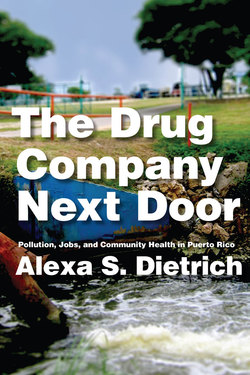Описание книги
"This fascinating and most timely criticalmedical anthropology study successfully binds two still emergent areas ofcontemporary anthropological research in the global world: the nature andsignificant impact of multinational pharmaceutical manufacturers on humansocial life everywhere, and the contribution of corporations to the fast-paceddegradation of our life support system, planet Earth. . . . Focusing on apharmaceutically-impacted town on the colonized island of Puerto Rico, Dietrichably demonstrates the value of ethnography carried out in small places inframing the large issues facing humanity." —Merrill Singer, University of Connecticut The production of pharmaceuticals is among themost profitable industries on the planet. Drug companies produce chemicalsubstances that can save, extend, or substantially improve the quality of humanlife.However, even as the companiespresent themselves publicly as health and environmental stewards, theirfactories are a significant source of air and water pollution–toxic to peopleand the environment. In Puerto Rico, the pharmaceutical industry is thebackbone of the island’s economy: in one small town alone, there are over adozen drug factories representing five multinationals, the highestconcentration per capita of such factories in the world. It is a place wherethe enforcement of environmental regulations and the public trust they ensureare often violated in the name of economic development. The Drug Company Next Door unites the concerns ofcritical medical anthropology with those of political ecology, investigatingthe multi-faceted role of pharmaceutical corporations as polluters, economicproviders, and social actors. Ratherthan simply demonizing the drug companies, the volume explores the dynamicsinvolved in their interactions with the local community and discusses thestrategies used by both individuals and community groups to deal with the consequencesof pollution. The Drug Company Next Door puts a human face on agrowing set of problems for communities around the world. Accessible and engaging, the book encouragesreaders to think critically about the role of corporations in everyday life,health, and culture.
